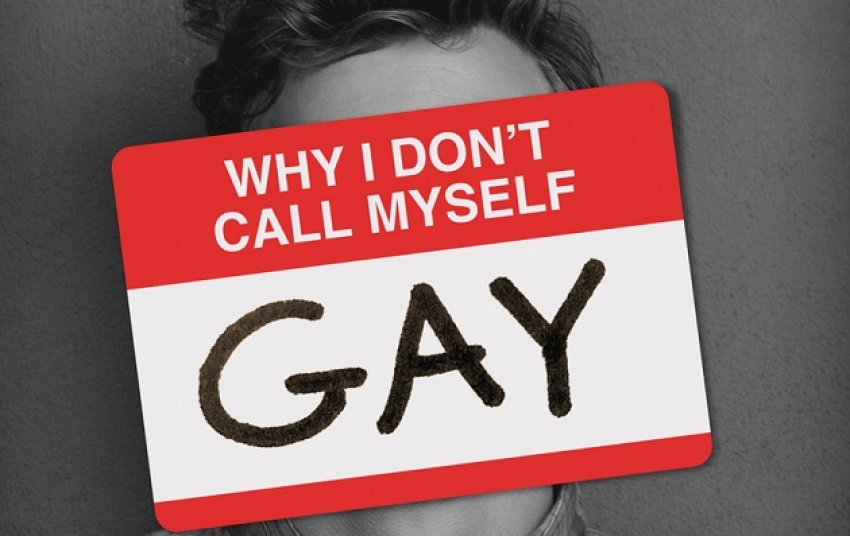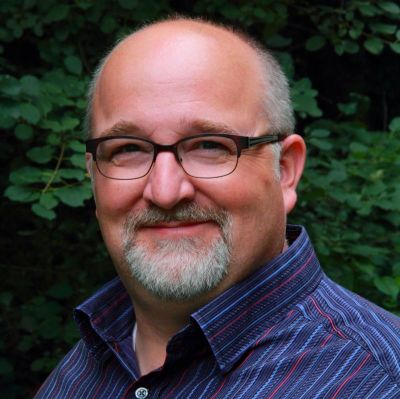Author Who Once Embraced Homosexuality Explains Why He No Longer Calls Himself 'Gay' (Interview)

Editor's note: Warning, this article includes graphic descriptions some readers might find offensive.
To call oneself "gay" is to shortchange sexual reality, says lay minister Daniel Mattson, who used to identify as homosexual but now leads a chaste life despite having same-sex attractions.
In a candid new book titled, Why I Don't Call Myself Gay: How I Reclaimed My Sexual Reality and Found Peace, Mattson details his story of growing up having same-sex attractions in the conservative Midwest and how he came to embrace homosexuality. But through a series of events he turned away from that and toward his newfound identity as God's beloved son, embracing the Catholic Church's teaching on human sexuality that he describes as beautiful and "liberating."
Written with heartfelt vulnerability and infused with hope, Mattson contends that the fundamental questions of identity can never be satisfied by tying one's personhood to modern, sexuality categories of being.
"The gay world was always a bit bewildering to me," Mattson said in an interview with The Christian Post.

He could never relate to much of the LGBT scene, he said, particularly the fervent political activism.
In poignant prose he recounts in the book that in his youth he never got the approval of other boys or men and didn't sense that he was well liked. But in an attempt to fit in, he joined them in looking at "soul-killing" pornography, he says, explaining how that and other circumstances in his life, such as a physical education class he describes as a "curse," affected his sexuality.
By the time Mattson was in his early 30s, he had no attraction to women. He had tried to follow God's commandments as best he could as a Christian, but he was lonely and miserable. He was all but convinced he was gay upon visiting a strip club in an attempt to stir up some sexual arousal for a woman and ended up talking about gardening with one of the dancers.
When he finally decided to go ahead and have sex with a man, he expressed his rage toward religion as he headed to Flint, Michigan, for the hookup he had arranged, which is described in the documentary Desire of the Everlasting Hills. As he drove by the Basilica of St. Adalbert in his hometown of Grand Rapids, he flicked off the church, shouting "f--- you, God" in defiance.
He later traveled to Chicago where he embraced homosexuality with the resolve to find a man with whom he could share the rest of his life. He had not yet come out of the closet when he met a woman to whom he was attracted.
"That didn't fit the [homosexual] narrative," Mattson told CP. "And I said, 'Am I bisexual? Am I gay? Why do we have these divisions?" he asked, describing his confusion.
Though he sometimes enjoyed sex with men it ultimately left him empty and unfulfilled, and the loss of the woman he was attracted to — someone he even thought he might be able to share his life with — precipitated a journey back to the same God he once cursed.
Baptized Catholic but raised as an evangelical, Mattson returned to the Catholic Church, in part, because of the writings of Cardinal Joseph Ratzinger, who later became Pope Benedict XVI. Ratzinger's 1986 letter to the bishops "On the Pastoral Care of Homosexual Persons" explains that the Church does not view human beings in terms of their sexual orientation but instead as beloved children of God who are male and female.
Interestingly, the Catholic Church's opinion mirrored that of many openly homosexual icons just a few decades ago.
Writer Gore Vidal rejected the idea that there was such a thing as a "homosexual" person, saying it was an adjective describing a sexual act. African-American novelist James Baldwin who had romantic and sexual relationships with men likewise expressed his discomfort with the word gay, saying it bothered him.
In the book, Mattson traces how the development of homosexual identity categories were constructed over time and how through strategic activism the public perception was shifted to regard sexuality primarily as an identity marker and not a sexual act. But God only uttered two words to describe man's sexual identity: male and female.
"We must save our language if we wish to teach our children, and the society in which we live, who they really are, and how to love God and to pursue the path that God has marked out for human flourishing," Mattson writes in a chapter titled "Reclaiming Sexual Reality."
He believes that underpinning much of the cultural chaos over these issues is a resurgence of Gnosticism and a dysfunctional view of the human body.
All the enemy of our souls has and can do is to rehash old heresies, Mattson told CP, mentioning that he was intrigued to watch Chaz Bono on "Good Morning America" some years ago say that gender was not found between the legs but between the ears.
"But the fact of the matter is that sex is what resides between our legs and goes through our whole bodies, because I am a body," Mattson asserted.
"And what resides between the ears is where fictions and delusions arrive, and confusions. And [Christians] have to proclaim the goodness of the unity of body and soul. That's fundamental to who we are as creatures," he stressed.
Churches must address the physics of same-sex sexual acts, he urged, even if it makes leaders squeamish.
"If this were any other health area, there would be a huge health campaign against — let's put it bluntly — anal sex," he said, adding that this applies to both men and women who practice it.
"Because we love people we should talk about this issue, even if it's difficult — at least in our Christian schools, churches, and parishes with youth. There should be informed consent to say, 'You need to know that these are the dangers."



























